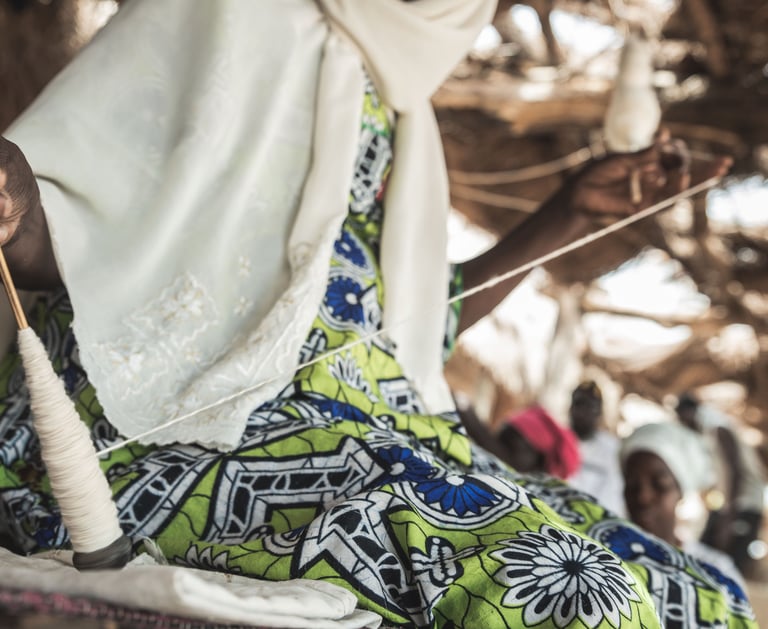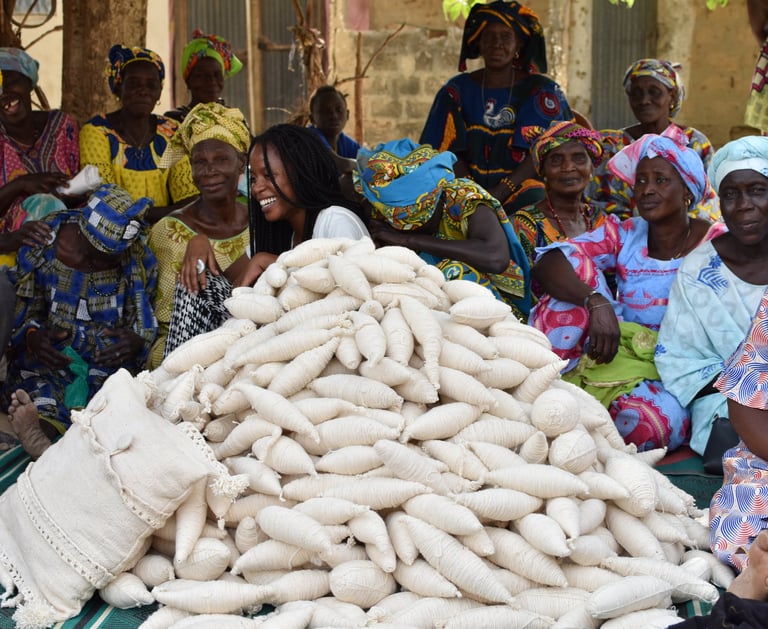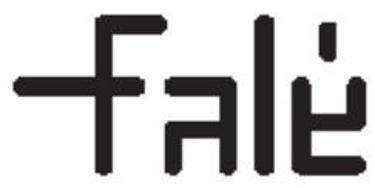Born and raised in Senegal, Fatim Soumaré is a visual artist and weaver. Since childhood, she has been continually introduced to traditional West African textile crafts by her mother, an artisan dyer.
At the end of 2020, back in her homeland after 12 years in France, she criss-crossed southern Senegal and fell in love with the tradition of hand-spinning rain-fed cotton, Falé. Fatim wanted to shed light on this striking know-how, which is on the verge of extinction, by creating a Falé textile crafts collective with today 200 craftswomen spinners living in 5 island villages of the Sine Saloum, so that it would survive and continue to be passed on. The next step was to set up a workshop to design exceptional textiles, where Fatim was joined by her partner Laurent Grisel to develop the company.


Falé is like a dogmatic myth, one that belongs to our African oral traditions. It is rooted in the ethnic peoples of Sahelian Africa, through artisanal weaving. It permutes in a pagan Africa, dressing the dead, to a religious Africa covering the genetical part of women.
Even today, among the seereer and mandingo people, many healers use it to make téré *.
Its been attributed from one gender to another, without complexity. Starting off as a man work before becoming that of a woman.With its value of an empirical nature, it has fully played the role of currency and has maintained this role up until the beginning of the 20th century being used as matrimonial compensations, especially among the Fulani.For many African people, Falé is the cultural tradition of turning cotton into yarn by hand.


"Wolof being the most common language spoken in the city where I grew up,
Fulani and Bambara being that of my mother,
Soninke, that of my father,
And Seereer that of the region in which I live,
"Falé" means and evokes exactly the same thing.
And it is precisely my desire to highlight the value of our traditional and multicultural African know-how that will set up my creative process."
Fatim Soumaré


